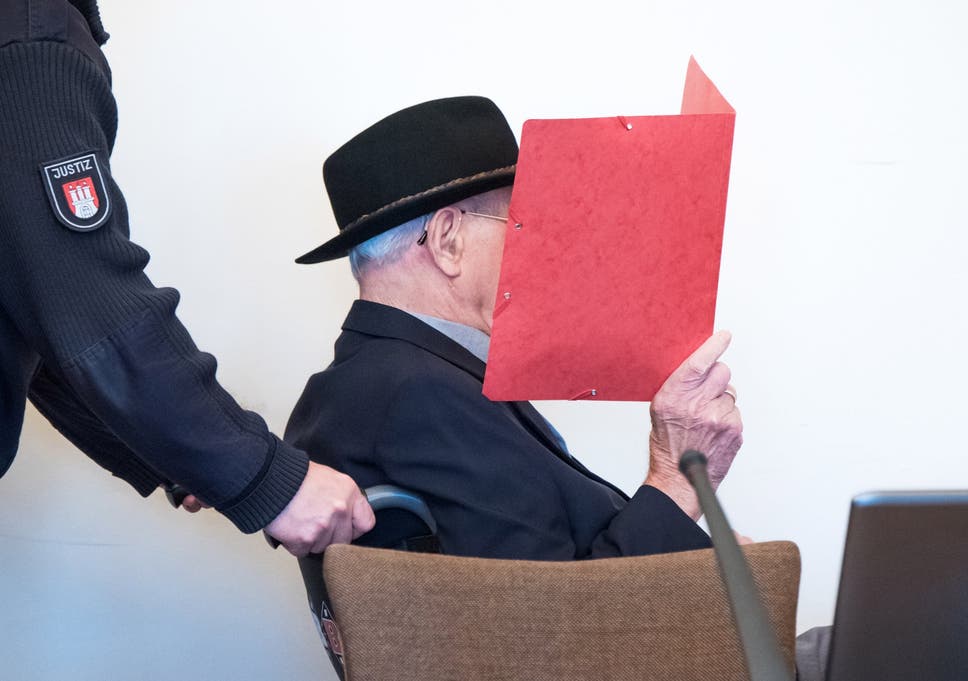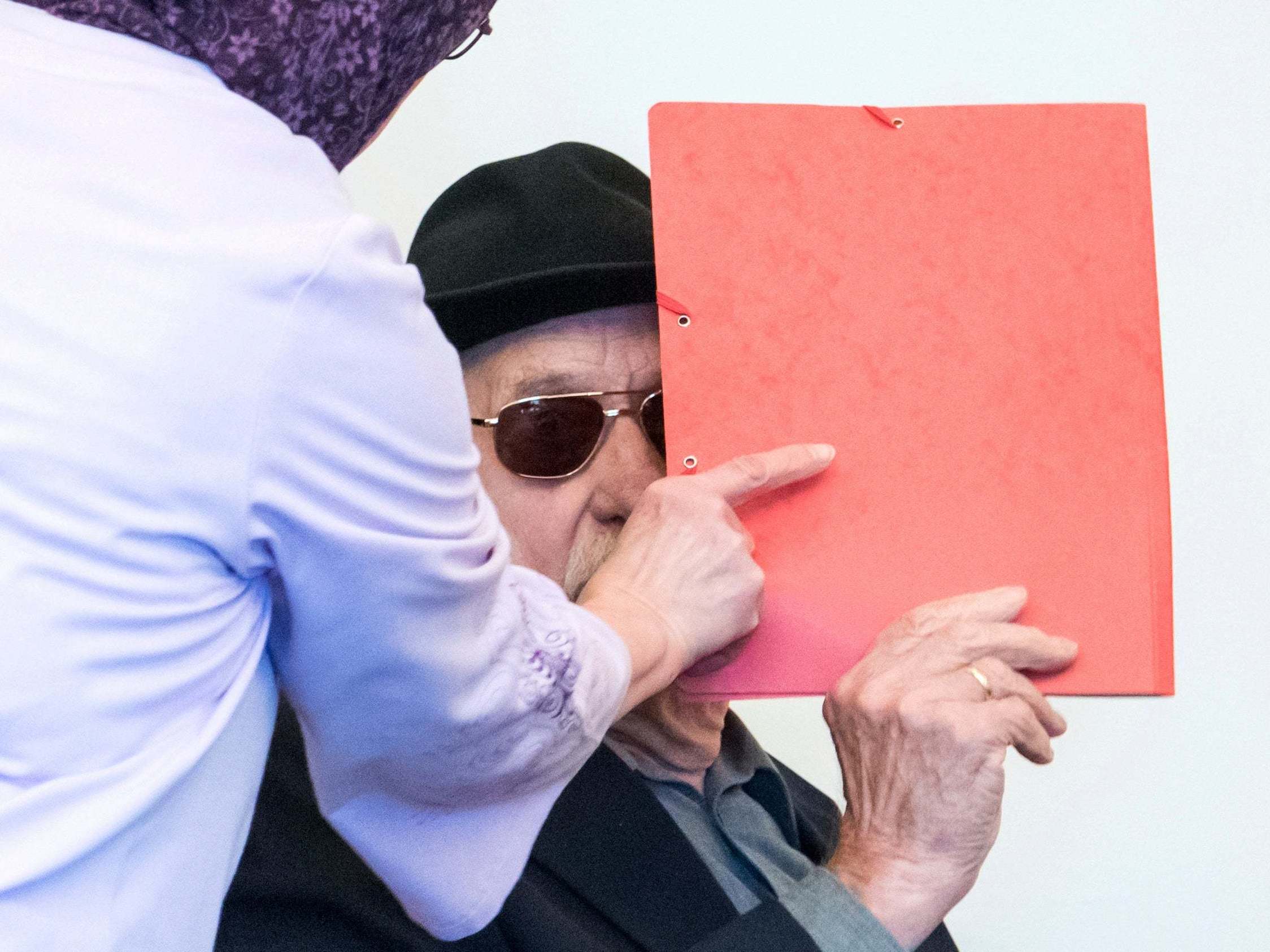
A court in Hamburg has convicted a 93-year-old former Nazi camp guard of more than 5,000 accessory to murder charges, handing him a two-year suspended prison sentence.
Bruno Dey, who served as a guard at Stutthof concentration camp in the final months of the Second World War, was convicted of 5,232 counts of accessory to murder – equal to the number of people believed to have been killed at Stutthof during his time there in 1944 and 1945.
He was also convicted of one count of accessory to attempted murder.
“How could you get used to the horror?” judge Anne Meier-Goering asked as she announced the verdict.
In a closing statement to the court, the wheelchair-bound German retiree apologised for his role in the Nazis’ crimes, saying they “must never be repeated”. He added: “I want to apologise to all of the people who went through this hellish insanity.”
Although prosecutors said Dey had no “ardent worship” of Nazi ideology, they argued that as a Stutthof guard he aided all the killings that took place there from August 1944 to April 1945 and was a “small wheel in the machinery of murder”.
Dey told the court that as a trained baker’s apprentice, he attempted to get sent to an army kitchen or bakery when he learned he had been assigned to Stutthof. As a guard there, he said he frequently was directed to watch over prison labour crews working outside the camp.
He acknowledged hearing screams from the camp’s gas chambers and watching as corpses were taken to be burnt, but he said he never fired his weapon and once allowed a group to smuggle meat from a dead horse they had discovered back into the camp.
“The images of misery and horror have haunted me my entire life,” Dey testified in court.
About 65,000 people, including many Jews, were murdered or died at Stutthof, according to its museum website. Prosecutors said many were shot in the back of the head or gassed with Zyklon B gas.

Because he was only 17, and later 18, at the time he served at Stutthof, Dey’s case was heard in juvenile court. Prosecutors had called for a three-year prison sentence, while the defence demanded acquittal.
Representatives of some 40 Stutthof survivors and their relatives, who joined the trial as co-plaintiffs, had urged the court to convict Dey, but did not push for a punishment beyond the prosecution’s recommendation.
Precautions also were taken to keep the case, which began in October, going through the height of the coronavirus pandemic. Court sessions were also limited to two, two-hour sessions a week because of Dey’s age.
Many trials of former Nazis have been described as “likely Germany’s last” over recent years. But last week another ex-guard at Stutthof was charged at the age 95, and the special prosecutors’ office investigating Nazi-era crimes has more than a dozen ongoing investigations.
It follows a precedent established in 2011 with the conviction of former Ohio autoworker John Demjanjuk as an accessory to murder following allegations that he served as a guard at the Sobibor death camp in German-occupied Poland. Demjanjuk, who denied the allegations, died before his appeal could be heard.
Before Demjanjuk’s case, German courts had required prosecutors to justify charges by presenting evidence of a former guard’s participation in a specific killing, a legal standard that was almost impossible to meet given the circumstances of the crimes committed at Nazi death camps.
However, prosecutors successfully argued during Demjanjuk’s trial in Munich that guarding a camp where the only purpose was murder was enough for an accessory conviction.
A federal court subsequently upheld the 2015 conviction of former Auschwitz guard Oskar Groening, strengthening the precedent.
The Dey case appears to extend the argument to apply to guards at concentration camps that did not exist for the sole purpose of extermination.
Additional reporting by agencies







